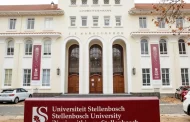By Adagbo Onoja
It is incredible how International Relations (IRs) is busy breaking down all the ‘China Walls’ and expanding into diverse realms of knowledge production, from the ‘linguistic turn’ to ‘quantum social theory’, society and technology, posthumanism, global entanglement and too many others, with particular reference to the metatheoretical and methodological issues involved.
One has been involved in one such research project in the past one year. It is no point making a show out of a routine in academia but making a story out of the seminar stage of this extraordinarily fascinating methodological exploration enable me to ask a question: why is it that in some climes, the tradition of looking for a resource person to critique a work is taken absolutely seriously but not so in some other climes where critique is rather taken as enmity, hatred, ‘bad belle’ or something else in those categories?

When it was my turn
And I do not ask this in a restrictive academic sense but well beyond academia in Nigeria, for example, taking note of Chief Olusegun Obasanjo’s point in one of his books that the word opposition doesn’t exist in our languages. One stands to be educated about this but it seems opposition, opponent, critique, the critical and the critic are unwelcome categories in our world outlook in Nigeria (or, is it Africa?).
It is difficult to have read exhaustively in whatever sense of that word at a time of, arguably, the ultimate radical contingency being a mature student involved in the “Officially Permitted Madness” (OPM) called PhD; as a Nigerian and as a humanist witnessing wars and screams all over the place. But even then, one thought one had done what was sufficient for this work but only for the resource person to bring an angle that makes it potentially richer and even more fascinating.
That was the point at which the observable differential attitude to critique I am talking about occurred to me. This is not about saying that the climes that are more disposed to critique are better or superior to those that may not be. No. That’s not the point. The point is the differential itself. And that differential exists, best typified by Obasanjo’s example cited above.
Don’t we need to reflect on that in terms of the advantages and disadvantages the attitude might embody vis-a-vis the possibility of social transformation? Do we have a future if we are happier always imagining enemies and how to lock out critique and the critical?
Is there any guarantee of a future of shared prosperity if when others are building and nurturing centres, NGOs and think tanks for production of critical stuff, we are assembling yes-men and “those we can trust”?
Food for thought or it thoughts for food?
This ‘madness’ is not over yet but that does not mean that making it communal investment can wait. Thankfully, a tongue twisting stuff such as ‘non-linearity’ is not far away from the women in my village or the girl child or the physically exhausted peasant farmer and all those bearing the burdens of structural violence everywhere in the world. In fact, it is about them because, as the slogan goes, “to ‘see’ is to break entanglement”. It is a powerful claim. The great thing is that knowledge is privately acquired but must find social usefulness.
Not time to start thanking those God has used to make this happen so far but it is worth thinking about the sociality of the knowledge acquisition – moral helpers, financial helpers, prayer warriors, unpaid consultants when there is a conundrum here and there, those who maintain a distance from being party to ‘madness’, cohort members, supervisors and the community of scholars at home and abroad, those who grant one interviews to those who gave one a second opinion. It is impossible for knowledge to be anyone individual’s brilliance. Rather, it is ever collective! Perhaps, that is what makes it or can make it an incredible experience!
Depending on privacy principles, there may be a second part to this piece




























